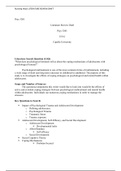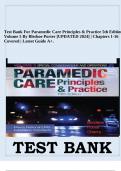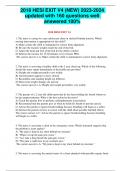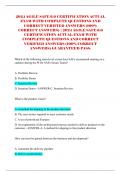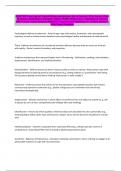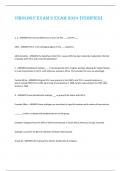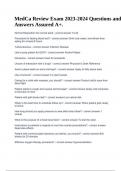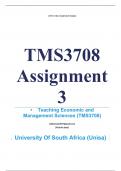Summary
Summary Psy5201 LiteratureReviewDraft U5A1.docx Psyc 5201 Literature Review Draft Psyc 5201 U5A1 Capella University Literature Search Question (LSQ) €œWhat does psychological literature tell us about the coping mechanisms of adolescents with psychologic
- Course
- Cap
- Institution
- Capella University
Psy5201 LiteratureReviewDraft U5A Psyc 5201 Literature Review Draft Psyc 5201 U5A1 Capella University Literature Search Question (LSQ) €œWhat does psychological literature tell us about the coping mechanisms of adolescents with psychological trauma? Psychological maltreatment is one...
[Show more]
